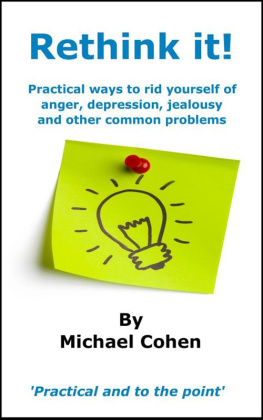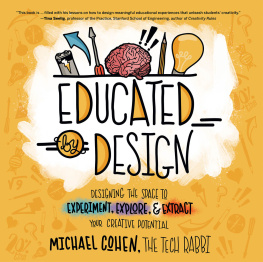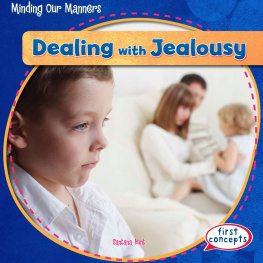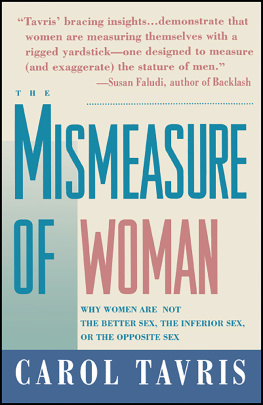Rethink it!
Practical ways to rid yourself of anger,
depression, jealousy and other common
problems
By
Michael Cohen
Bookline & Thinker Ltd
Do you tell yourself, Im not good enough, or Things are far too difficult, why should I even try?
Words like this affect the way we feel and act. Such negative talk leads to fear, anxiety, depression and a why bother attitude.
Rethink it! gives practical advice on tackling destructive thoughts that lead to anger, rejection, shame, jealousy, fear and worry.
Rethink it! is a self-improvement tool kit that can be dipped into and doesnt have to be read from cover to cover. Learn how to be more assertive, improve your communication, have better relationships and even overcome blushing. Michael Cohen is a London therapist with more than 28 years of experience and is bestselling author of The Power of Accepting Yourself.
A practical and pragmatic book that teaches how to change thoughts and beliefs in order to control unhealthy moods and self-defeating behaviour. I will recommend Rethink it! to my clients in addition to the help they receive from me.
Meir Stolear
Senior Accredited REBT/CBT psychotherapist.
Important Notice
This book is designed to provide information in regard to the subject matter covered. It is not intended to be a substitute for medical or psychological advice or treatment. It is sold with the understanding that the publisher and author are not engaged in rendering psychological, financial, legal or other services. Any person with a condition requiring medical or psychological attention should consult a qualified medical practitioner or suitable therapist.
All client names and cases mentioned have been disguised to protect their privacy and confidentiality.
Dedication
To my dear parents Loretta and Gerald
Part 1
Be your own best friend
What do you say when you talk to yourself?
You have heard the statement: Talking to yourself is the first sign of madness. We talk to ourselves most of the time, even though we may not realise it. This self-talk takes place internally within the privacy of our own mind. All too often, self-talk is harsh, self-defeating, counterproductive and even abusive. We give ourselves labels that can prevent us from experiencing a truly happy, productive and fulfilling life. If youve developed a negative style of talking to yourself, you may be missing opportunities, performing below your potential and experiencing more stress than necessary.
In a similar way to negative comments from other people, our own internal dialogue can have a dramatic effect on how we feel, especially when it consists of unkind and unhelpful language.
Sometimes, this negative self-talk has a personal or historical root. It is as children that we first internalise unhelpful ideas. Parents, teachers, religious figures and others can lead us to believe negative and unjustified ideas about ourselves. If we are continually in an environment where we are being judged or criticised, our own internal dialogue takes on an extremely negative tone.
So that
Youre stupid, becomes Im stupid.
Youre bad, becomes Im bad.
Youre selfish, becomes Im selfish.
Thats far too difficult for you dont even try, becomes Why bother, and so on.
Since the things we say to ourselves can have such a powerful effect on the way we feel and act, negative self-talk often leads to fear, anxiety and depression. Harmful self-talk can be triggered by all sorts of events, including social and work-related situations, and can occur when both good and bad things happen.
Fortunately, the reverse is also true. You can turn negative self-talk into an optimistic, positive-style of thinking. Martin Seligman, an American professor of psychology, has studied the way people explain the positive and negative events in their lives. His research shows that pessimists tend to base their view of the world on negative events. Conversely, optimists tend to distance themselves from negative events and gravitate towards the positive.
As an example, imagine that you are at a friends home and you drop a mug of coffee. Do you see this as a small accident that occurred because you were distracted, or do you feel ashamed and tell yourself youre an awkward fool? If youre a pessimist, youre likely to label yourself as the awkward fool, whereas optimists are far more likely to accept it as an accident.
Replacing negative self-talk with a positive attitude will create good feelings and set you on the path to achieving healthy emotions.
Rethink it!
Instead of:
I will never succeed with this project its hopeless and so am I.
Say:
I have achieved more than I am giving myself credit for. I am not hopeless and have a very good chance of succeeding.
Instead of:
She thinks Im attractive she must be mad!
Say:
Im going to ask her out on a date I hope shell say yes.
Instead of:
My presentation is going to be terrible! Ill be the laughing stock of the office.
Say:
I have given successful presentations before. This one is likely to be well received.
Other ways to challenge negative self-talk:
What would you say to a best friend?
Your best friend comes to you for support. Shes in tears because shes made a mistake and is berating herself mercilessly.
Do you say?
I agree with you. You have made a terrible mistake that you can never put right. You, of all people, should really know better. You are a horrible person who should be thoroughly ashamed of yourself.
Perhaps a family member comes to you because he or she is discouraged and on the verge of giving up on an important project.
Would you say?
Yes, give up now. In fact, you should have given up months ago. You know youre weak a loser whos destined to never amount to anything. Its only going to get harder, so why try? What were you thinking anyway?
Im sure your answer to both of these is a resounding NO! The reality is that you would want to show your friend empathy in a positive and reassuring manner. After all, a friend is meant to be someone who believes in you when you have given up believing in yourself.
But wait do you talk to yourself in ways you would never contemplate when talking to a friend or family member?
In times of need, do you offer comfort and support to your friends and loved ones, but reprimand yourself with harsh and critical putdowns?
If so, why the double standard?
Remember, be your own best friend. Whatever encouraging words youd say to your best friend, say those words to yourself. You deserve it.
Keep a diary of your negative thoughts
Whenever you experience a negative thought, write it down in a diary and explain what triggered it. Review your diary on a regular basis. Was your negativity truly justified? Is there another way to view the situation? For example, change:
Im an idiot for losing my job. I will never find another one like it.
To:
Its unfortunate that I lost my job. I wish I had been more efficient. I dont like losing my job, but I can handle it. Finding another job may be challenging, but I can do it!
Just by paying attention to how you talk to yourself, you can make huge changes in your life. Often, a negative inner dialogue has taken years to develop, so creating a positive one will take time as well. However, with work and practise, you can greatly boost your confidence.











